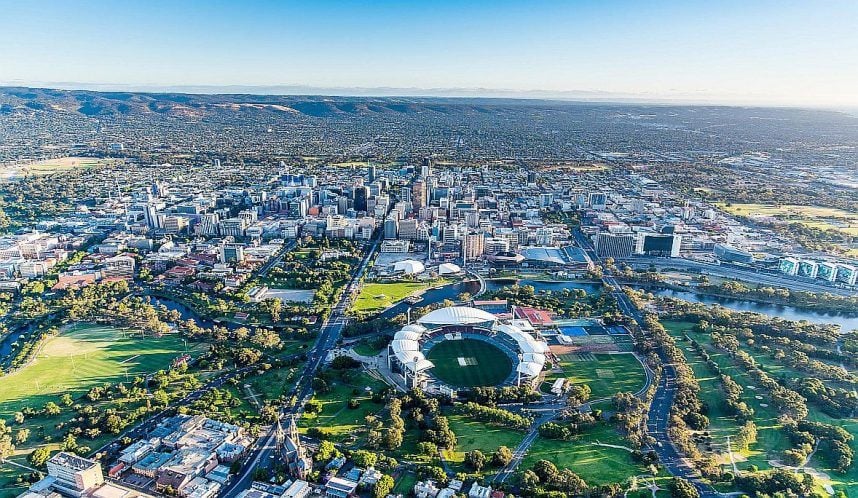South Australia’s Gaming Regulator Backs Ban on Liquor Shots at Clubs
Posted on: August 8, 2023, 08:25h.
Last updated on: August 8, 2023, 12:14h.
The central business district (CBD) in Adelaide, Australia, may soon become a little more boring for some people. While clubs and pubs see a forced decrease in their slot machines, they’re also dealing with new limits on when their patrons are allowed to knock back a few shots.

Officials in Adelaide’s CBD believe they need to implement fresh regulations to combat what they see as the prevalence of alcohol-related aggression. One of the core measures proposed involves the imposition of a strict cut-off on shots, prohibiting bars and clubs from serving them past 2 a.m.
Growing unease regarding the well-being and protection of CBD visitors has resulted in the implementation of the prohibition. This step has been taken, according to South Australia’s gaming regulator, in an attempt to mitigate the occurrence of disruptive conduct in the area.
CBD Becomes Wild West
The CBD, according to local officials, has been engulfed by an escalating issue of violence tied to alcohol consumption. As a result, the only recourse was the establishment of more rigorous regulations. South Australia’s gaming regulator, the Office of the Liquor and Gambling Commissioner (OLGC), reportedly supports the measures.
The prohibition specifically targets the nighttime period, during which such incidents are more likely to occur. In accordance with a broader strategy to establish a more pleasant sanctuary for consumers and tourists in the city center, the decision has been made to limit the availability of shots.
In doing so, it’s anticipated that there will be a substantial decrease in instances of violence associated with alcohol consumption. The ban doesn’t extend to flasks or other containers that consumers may carry with them.
In a bid to reduce social misconduct and alcohol-related damage within the CBD and its vicinity, Adelaide implemented citywide “lockout laws” in 2013, part of a larger Late Night Trading Code. These limited operational hours of many establishments, forcing them to turn away patrons from 3-7 a.m. daily.
Recent studies have revealed a 50% decline in alcohol-related hospital visits since the initiation of the lockout, according to South Australian figures. The presence of the anti-alcohol rules during the early hours of the morning has also played a significant role in decreasing the city’s crime rate. Compared to 2013, offenses occurring between midnight and 7 a.m. have notably decreased.
Those milling around the CBD in the middle of the night will continue to see “drink marshals,” as well. These individuals were initially introduced as a measure to enforce physical distancing rules during the COVID-19 pandemic. The OLGC has confirmed that they have the authority to intervene if consumers engage in actions deemed unacceptable.
Unlock Adelaide
In December 2022, a movement known as ‘Unlock Adelaide’ emerged, where club and bar owners openly admitted their inclination to defy laws. Their objective was to challenge the imposed lockdown that had proven challenging for numerous patrons.
Their attempts to attain their desired outcome didn’t yield the results they hoped for. However, they haven’t given up.
Amid a review of the laws earlier this year, Unlock Adelaide argued that the rules didn’t lead to significant improvements, and that the city was already cleaning itself up prior to the Late Night Trading Code. The group suggests that authorities haven’t been forthcoming with all of the data in order to properly analyze the results.
Unlock Adelaide has plans in place to try to work with the government if it never succeeds in getting the lockout pulled. One of the ideas is to stagger the lockout hours among the establishments. But this has yet to find enough support.
Related News Articles
Australia’s Gambling Ads to Carry Safer Messages to Deter Spending
Las Vegas Sands Lands Lease Accord on Nassau Coliseum
Bally’s Trump Links Casino Plan Beset by Bureaucratic Delays
Most Popular
LOST VEGAS: The Foster Brooks Robot at MGM Grand
Bally’s Sets Date for Tropicana Las Vegas Implosion & Party
Most Commented
-
VEGAS MYTHS RE-BUSTED: You Don’t Have to Pay Resort Fees
— August 2, 2024 — 16 Comments -
VEGAS MYTHS RE-BUSTED: Elvis Was a Straight-Up Racist
— August 9, 2024 — 11 Comments -
ANTI-SOCIAL BEHAVIOR: Vegas Casino Buffet Stunt in Poor Taste Goes Viral
— August 16, 2024 — 7 Comments -
VEGAS MYTHS RE-BUSTED: The Strip Tried Appealing to Families and Failed
— August 23, 2024 — 7 Comments
















No comments yet